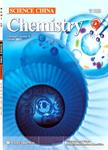AI for organic and polymer synthesis
作者机构:Center of Chemistry for Frontier TechnologiesDepartment of ChemistryZhejiang UniversityHangzhou 310027China Center of Basic Molecular ScienceDepartment of ChemistryTsinghua UniversityBeijing 100084China Guangzhou National LaboratoryGuangzhou 510005China Center for Quantitative BiologyAcademy for Advanced Interdisciplinary StudiesPeking UniversityBeijing 100871China State Key Laboratory of Molecular Engineering of PolymersDepartment of Macromolecular ScienceFudan UniversityShanghai 200433China School of Materials Science and EngineeringPeking UniversityBeijing 100871China Beijing National Laboratory for Molecular SciencesCenter for Soft Matter Science and EngineeringKey Laboratory of Polymer Chemistry and Physics of Ministry of EducationCollege of Chemistry and Molecular EngineeringPeking UniversityBeijing 100871China AI for Science(AI4S)-Preferred ProgramShenzhen Graduate SchoolPeking UniversityShenzhen 518055China State Key Laboratory of Chemical BiologyShanghai Institute of Organic ChemistryUniversity of Chinese Academy of SciencesChinese Academy of SciencesShanghai 200032China Department of Chemical SciencesNational Natural Science Foundation of ChinaBeijing 100085China State Key Laboratory of Organometallic ChemistryShanghai Institute of Organic ChemistryChinese Academy of SciencesShanghai 200032China
出 版 物:《Science China Chemistry》 (中国科学(化学英文版))
年 卷 期:2024年第67卷第8期
页 面:2461-2496页
核心收录:
学科分类:12[管理学] 081704[工学-应用化学] 07[理学] 08[工学] 070305[理学-高分子化学与物理] 070303[理学-有机化学] 1201[管理学-管理科学与工程(可授管理学、工学学位)] 0817[工学-化学工程与技术] 081104[工学-模式识别与智能系统] 080501[工学-材料物理与化学] 0805[工学-材料科学与工程(可授工学、理学学位)] 0703[理学-化学] 0835[工学-软件工程] 0811[工学-控制科学与工程] 0812[工学-计算机科学与技术(可授工学、理学学位)]
基 金:supported by the National Natural Science Foundation of China (22393890, You SL 22393891 and 22031006,Luo S 2203300, Pei J 22371052, Chen M 21991132, 21925102,92056118, and 22331003, Zhang WB 22331002 and 22125101, Lu H 22071004, Mo F 22393892 and 22071249, Liao K 22122109 and22271253, Hong X) the National Key R&D Program of China(2023YFF1205103, Pei J 2020YFA0908100 and 2023YFF1204401, Zhang WB 2022YFA1504301, Hong X) Zhejiang Provincial Natural Science Foundation of China (LDQ23B020002, Hong X) the Starry Night Science Fund of Zhejiang University Shanghai Institute for Advanced Study (SNZJU-SIAS-006, Hong X) the CAS Youth Interdisciplinary Team (JCTD-2021-11, Hong X) Shenzhen Medical Research Fund (B2302037, Zhang WB) Beijing National Laboratory for Molecular Sciences (BNLMSCXXM-202006, Zhang WB) the State Key Laboratory of Molecular Engineering of Polymers (Chen M) Haihe Laboratory of Sustainable Chemical Transformations and National Science&Technology Fundamental Resource Investigation Program of China (2023YFA1500008, Luo S)
主 题:organic synthesis polymer synthesis machine learning prediction chemical database automated synthesis
摘 要:Recent years have witnessed the transformative impact from the integration of artificial intelligence with organic and polymer synthesis. This synergy offers innovative and intelligent solutions to a range of classic problems in synthetic chemistry. These exciting advancements include the prediction of molecular property, multi-step retrosynthetic pathway planning, elucidation of the structure-performance relationship of single-step transformation, establishment of the quantitative linkage between polymer structures and their functions, design and optimization of polymerization process, prediction of the structure and sequence of biological macromolecules, as well as automated and intelligent synthesis platforms. Chemists can now explore synthetic chemistry with unprecedented precision and efficiency, creating novel reactions, catalysts, and polymer materials under the datadriven paradigm. Despite these thrilling developments, the field of artificial intelligence(AI) synthetic chemistry is still in its infancy, facing challenges and limitations in terms of data openness, model interpretability, as well as software and hardware support. This review aims to provide an overview of the current progress, key challenges, and future development suggestions in the interdisciplinary field between AI and synthetic chemistry. It is hoped that this overview will offer readers a comprehensive understanding of this emerging field, inspiring and promoting further scientific research and development.



